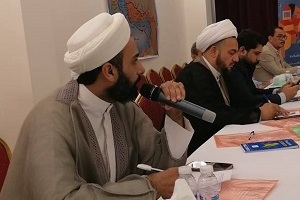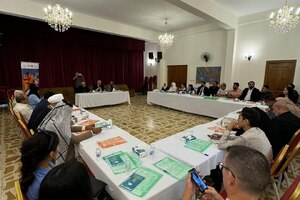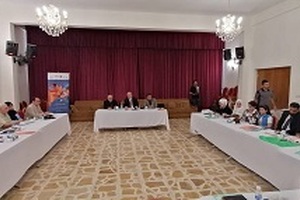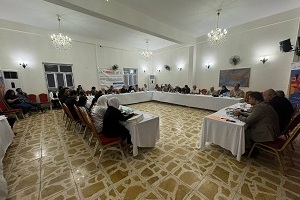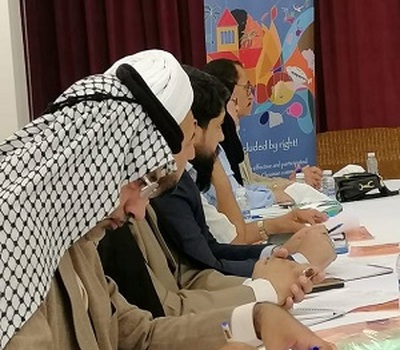
- Walliam Warda: Respecting differences in religious, sectarian or ethnic privacy, never permit common affiliation and responsibility in building a society recovering from the illnesses of the recent or distant past.
Hammurabi Human Rights Organization held a discussion session in Basra to promote peacebuilding, peaceful coexistence and community stability and cohesion.
The discussion panel held on September 12, 2024, in the kindergarten hall of Sayidet Al-Beshara in the district of Al-Tuwaisa in Basra , on the basis of the recommendations resulting from the previous meetings held by Hammurabi in Basra in June 2023, addressing the gaps and difficulties in building peace and stability in Iraq, focusing on two important questions,
One focus on searching the gaps either in the Iraqi society, the regime or in the entity of the Iraqi individual, The other question address whether good intentions were sufficient on traditional means of protection of minorities or to overcome the policies of marginalization and assimilation to move beyond policies of marginalization and assimilation and to engage in frank discussions on guaranteeing rights and recognizing diversity as a civilized and human requirement.
Participants including clergymen, academics, representatives of civil society and NGOs, advisers in government institutions, and well-known social figures in Basra, discussed how to build on previous recommendations and what priorities can be initiated to build peace and promote peaceful coexistence in Basra, in particular and Iraq in general.
Participants emphasized practical priorities for achieving short, medium and long-term objectives.
Participants set important points to determine the steps to establish the core of a cultural intellectual project at the level of Iraq to combat religious, sectarian and ethnic extremist ideas, in which all participate, governmental and non-governmental institutions, social and cultural elites, schools and universities, founded on citizenship and peace, in which the greatest sense of belonging is to the homeland and not to any religious, sectarian or ethnic affiliations..
Mr. William Warda, the media and public relations officer at the Hammurabi Organization, who moderated the dialogue, stressed that it is more appropriate for decision-makers to work on adopting policies that embrace diversity as a basic feature of civilized societies and to replace policies of assimilation and marginalization with a civilized approach based on communication, dialogue, listening to opinions and other opinions, working to know the specificities of Iraqi groups well and directly, and adhering to frankness and transparency and avoiding compliments to achieve a good path to building peace.
Mr. Warda added, "Respecting differences in religious, sectarian or ethnic privacy never erases the common belonging to the homeland and bearing responsibility for building a society that is free from the diseases of the recent and past"
The participants stressed the importance of establishing national platforms for community dialogue in cooperation with the government, which would open the doors to discussion on pending issues between the various components of society, and there would be an effective role for youth, thinkers, intellectuals and social elites in these dialogues.
Participants also emphasized that the aspects of bridging gaps fall on state institutions, whether legislative, executive or judicial, especially when it comes to national plans to improve services, transitional justice programs, reforming security institutions, encouraging economic and development projects, and the issue of reforming and activating laws related to discrimination and citizenship, and other programs related to the promotion of community cohesion.


